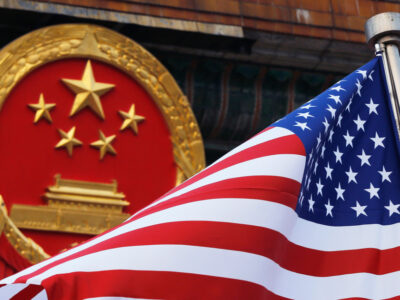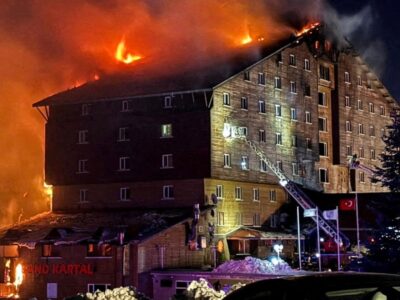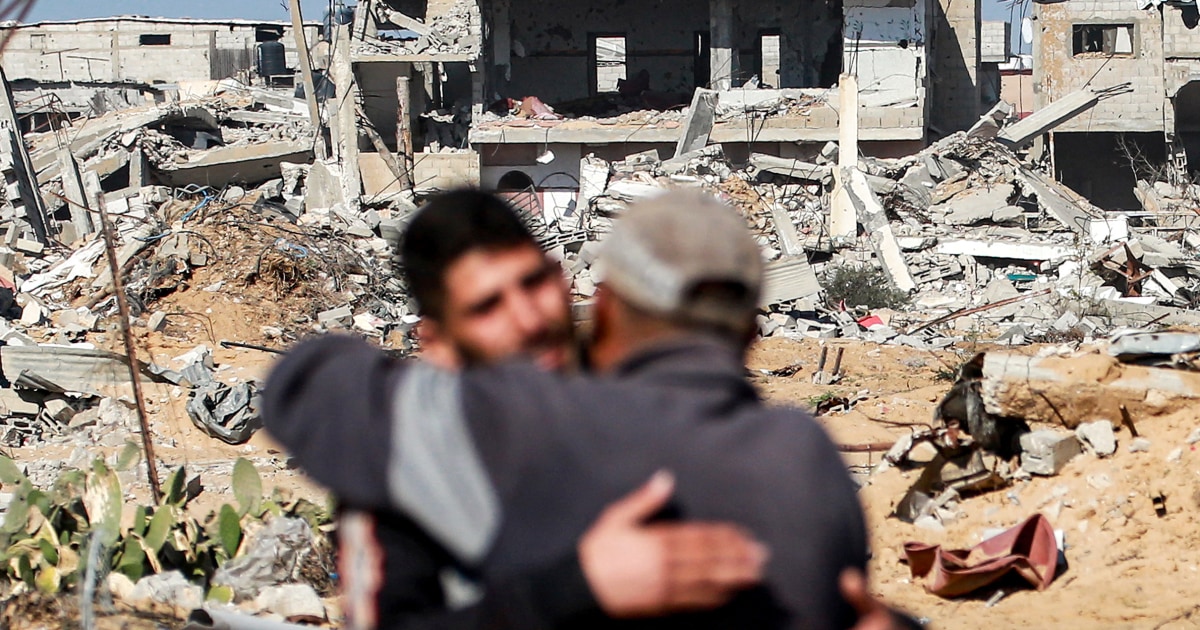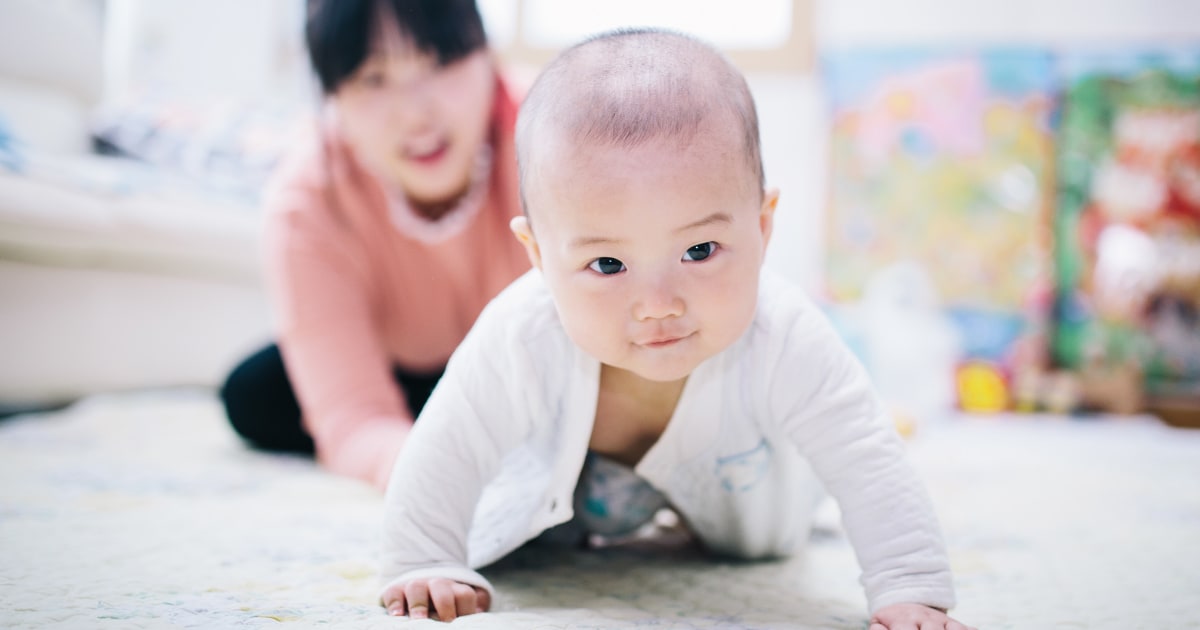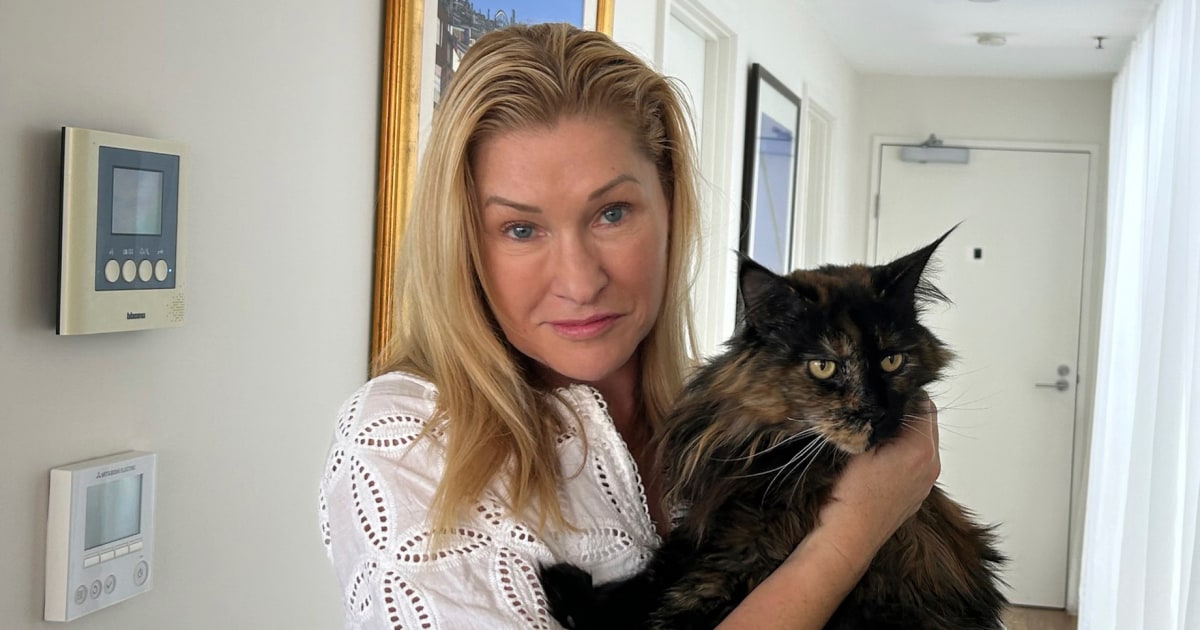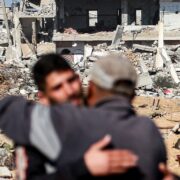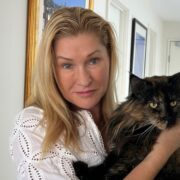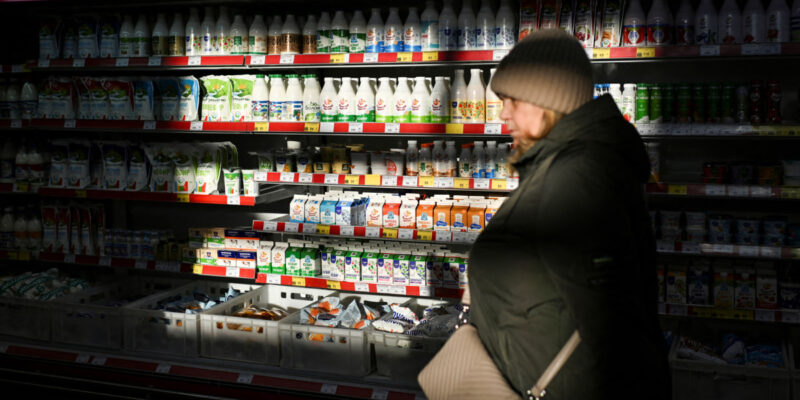
MOSCOW — It’s akin to Turkey at Thanksgiving: On New Year’s in Russia, revelers traditionally consume lashings of Olivier salad.
It was introduced to the then-Russian Empire in 1860 by French chef Lucien Olivier, but these days everyone has a slightly different recipe. It’s so popular that the cost of its staple ingredients — which usually include sausage, potatoes and dollops of mayonnaise — have their own price index that’s tracked by the media.
With soaring inflation and the ruble dropping to one of its lowest levels against the dollar since President Vladimir Putin launched his war in Ukraine, this year Russians will have to pay more for the dish, which is traditionally served alongside caviar and tangerines, before the New Year is toasted in.
Along with rising food prices, a weaker ruble following the latest round of American sanctions in November has fueled inflation and driven up the cost of imports into Russia. A huge increase in military spending has also led to labor, supply and production shortages. And while workers from every industry have volunteered or been called up to serve in Ukraine, farming has been among the worst affected.
The so-called Olivier Index, which monitors how much it costs to make one of the salads for four people, is up 16% year over year, to 414 rubles from 348, according to Rosstat, Russia’s federal statistics agency. (That’s equivalent to a jump to $3.94 from $3.31.)
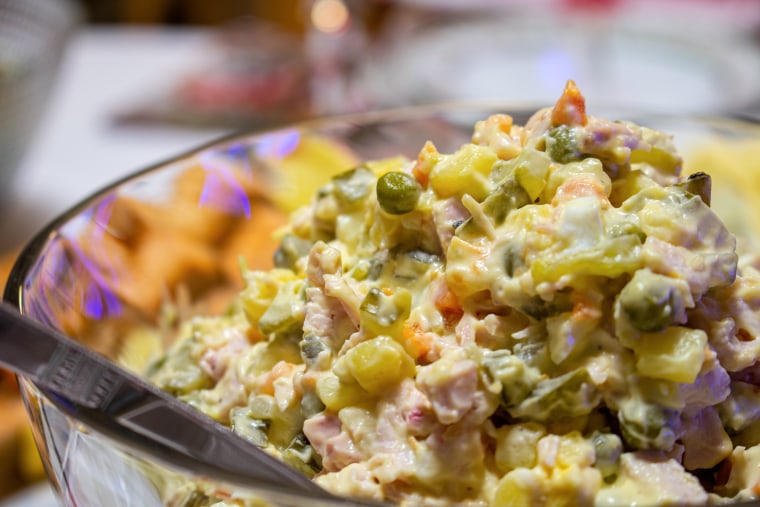
Olivier salad is made with chopped vegetables, meat and mayonnaise.Dmitry Koshelev / iStockphoto via Getty Images file
And prices have shot up for other groceries such as eggs (up 45% since January) and butter (up almost 40%), according to data released this month by Rosstat. Potatoes, meanwhile, cost almost twice as much as they did a year ago. Between November and December alone, they rose 10% from 99.99 rubles to 109.99, according to an NBC News analysis. While not a staple food, caviar has shot up to almost 9,000 rubles per kilo from 6,000 in December 2023, Rosstat found.
So ordinary people, for whom the average salary is around $830 a month, are feeling the pinch.
“Everything’s getting more expensive — bread, meat, vegetables, fruit,” Svetlana Govorukhina told NBC News in a telephone interview earlier this month.
“I can see everything is getting more expensive but as I can still afford all I need,” added Govorukhina, a 69-year-old music teacher from Kaluga, a city around 125 miles south of Moscow.
“I can support myself even in the current situation. But as long as I cannot do anything about the economic situation, I prefer not to waste my emotions on it,” she added.
But that puts her in the minority, as rising prices become the most pressing concern for Russians in most regions, according to a study published Dec. 27 by CROS, a Moscow-based marketing and communications agency. Prices replaced the war in Ukraine as the main concern for the first time since February 2022, when Putin ordered the invasion of his neighbor, according to the findings, which are based on analysis of social media trends and reports in traditional news media.
“The rise in prices is particularly painful for the poorest, but the middle class — accustomed to higher levels of consumption and frequently purchasing imported goods — may feel the impact more acutely,” Tatiana Stanovaya, a senior fellow at the Carnegie Russia Eurasia Center, a Berlin based nongovernmental organization, said earlier this month.
And that was certainly the case for Moscow-based university worker Anna, 37, who said the cost of “baby foods, diapers and so on grew colossally,” as sanctions started to bite shortly after Putin launched his invasion of Ukraine and her son turned 1.
Prices “bounced back a bit later, but since then everything has rather been getting more and more expensive,” she said.
Anna did not want her last name or the name of her husband to be published out of fear of retribution against her family. Putin’s war next door has brought a far-reaching crackdown on dissent at home, and anything that can be perceived as an anti-war stance could result in arrest or even jail time.
She added that meat and fruit prices had also risen, but she was still prepared to splurge.
“When I see the final sum at the checkout, I start worrying as it used to be significantly smaller for the same list,” Anna said. “But I still buy the same, I am not cutting back on anything.”
She added that she was going to make Olivier salad for New Year’s but would use potatoes grown by her mother-in-law, who like many Russians is mindful of previous economic hardship and keeps her own vegetable garden.
“As for the sparkling wine, we will go with Italian. We are ready to pay more for it,” Anna said.
Her husband’s “major complaint is that there is no good beer anymore,” she said. “He just does not like Russian beer brands.”
An overheating economy?
Addressing the economy at his annual end-of-year news conference earlier this month, Putin said that inflation was a problem and that the country’s economy was “overheating.” In part, he blamed international sanctions for price rises, “because they make logistics more expensive,” but he also appeared to criticize Russia’s central bank for failing to tame inflation.
In an apparent response, the bank did not raise its interest rate to 23% the following day, a move that had been widely expected.
While the social and financial difficulties have yet to translate into significant political dissent “even with substantial repression,” avoiding large-scale anger over economic issues “matters to the authorities and it appears to matter to Putin,” Alex Brideau, of the Eurasia Group, a New York-based political risk consultancy, said in an interview earlier this month.
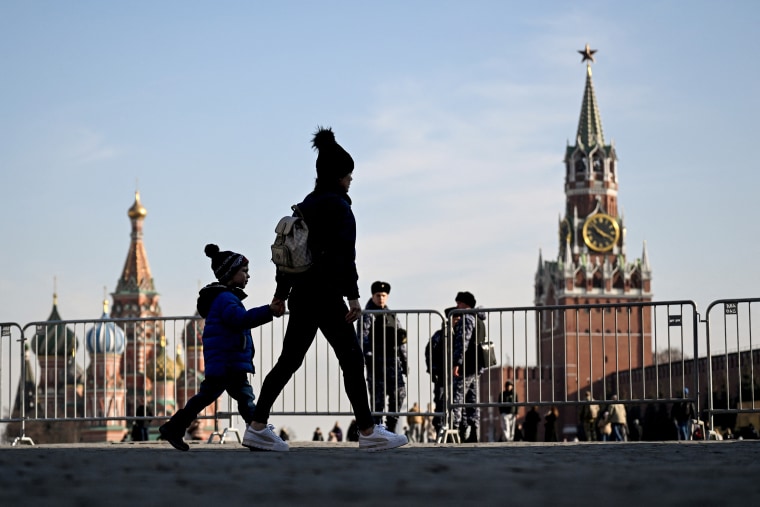
The Red Square in Moscow.Natalia Kolesnikova / AFP – Getty Images file
He added that Putin had “been able to shift the blame for high prices away from himself and onto the government or businesses in the past and will probably do that again.”
Nonetheless, he said, the rising prices would “put a lot of pressure on the government to show that it is handling the situation with minimal disruption to the public’s holiday festivities.
Back in Russia, music teacher Govorukhina was determined to make the best of the New Year celebrations.
“We didn’t eat a lot when we were younger, and now as we have gotten older we need even less. I can afford caviar, but not crab meat, though it is now hard to find a good one,” she said.
“I have friends who complain, but I am not like that. Your lifestyle is more important than money. I love music and going to concerts, I love my job — this helps to somewhat cushion these blows. We have never had a rich life.”
Lena Medvedeva reported from Moscow. Karen Glichrist and Henry Austin from London.



